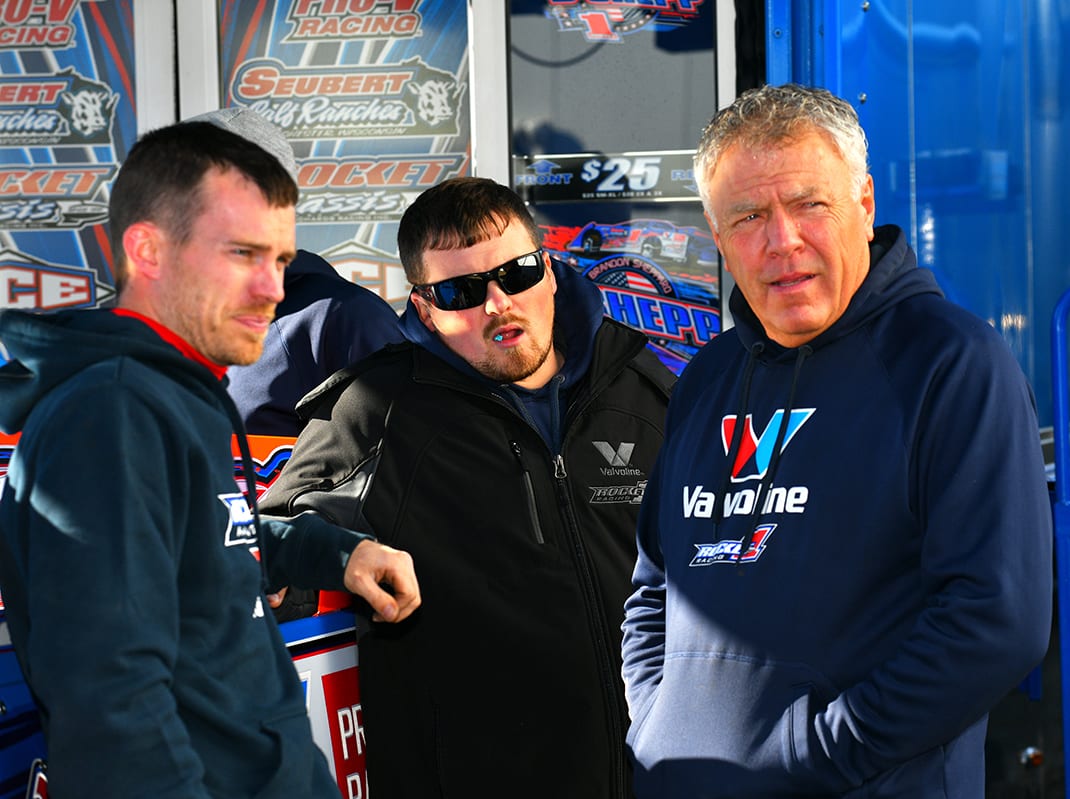SPEED SPORT: How do you separate being a car owner from being a chassis builder?
Richards: We do it because this is our research-and-development program of the business. We want our customers to win. We want all of our customers to win. We have to campaign a car at the national level in order to get the advertising benefit out of it and the research and development out of it to bring ideas back to our customers.
We’ve tried it a couple of different ways, but this has been the way we can control the information. Let’s say you’re a chassis builder and you’re supporting a driver and he’s racing and learning and you’re not getting all the feedback back because he’s afraid you’re going to give it to other customers. It’s not a good situation. We control our information, which allows us to keep our customers up to speed. We do as good a job of that as anybody in this business because we own the information that we learn.
SPEED SPORT: Does Rocket Chassis the business ever operate without Rocket1 Racing the race team?
RICHARDS: I think it would be hard to do and be successful. I’ve watched other chassis companies try to do it with other drivers and sometimes with no house car driver. The problem is you can’t obtain enough information to share with your customers to be beneficial to your customers. I mean this isn’t like buying a street car. You buy a street car and you’re not looking for it to perform and win races. You’re really just looking for it to drive you to work and back or to the grocery store and back. Yeah, maybe it might have a light come on or something go wrong, but you take it back to the dealership and you get it fixed.
We sell a product that people expect performance (from) and you’re only as good as your performance in this business. It goes back to the old saying that the car makers used to say — Win on Sunday, sell on Monday. It’s about the same thing here. We win on race day and we sell on Monday.

SPEED SPORT: What is the biggest problem is in dirt late model racing today?
Richards: I think there are a lot of elements here that involve a lot of motorsports, not just dirt late models. We live in a period where people want instant results and we’ve got all kinds of different social media. We have it, too. We have a lot of media channels. We have pay-per-view, we have the TV networks, which in our sport the TV networks haven’t been that much of a deal. But I think we’re going to have to rely on that more now than we ever have …but I think we’ve lost a lot of the local fans. What I mean by that is the local tracks don’t build heroes like they used to.
Back in the day before all this social media, pay-per-view and all that stuff, the local tracks built heroes because you went to the race and the guy that won, you thought he was the greatest driver ever. You didn’t hear about a national event where Scott Bloomquist or Jonathan Davenport or Brandon Shepherd won that night because you were at a local track. Now, everybody bases everything off of the best. Who’s the best? That local guy becoming a hero, those days are gone and if there’s anything missing or anything I’d say that has hurt the sport, that’s hurt the sport more than anything — losing the local heroes.
SPEED SPORT: How do you solve that problem?
Richards: We’re beyond that as a society, we’re looking for instant results and we want to know who’s the best. Whenever we’re at Eldora and all the best dirt racers are there and Jonathan Davenport wins — OK, that’s the standard. We’ve got to stand up to Jonathan Davenport. A local guy at some local speedway raced that night. But there were 300 or 400 people, maybe 500 people watching him, and there were thousands of people around the world watching that race at Eldora. So it’s hard for that local guy to stand up and be that hero today. I hope there’s a way to fix it. I don’t know of one.
Check back tomorrow for part two of our interview with Mark Richards.
